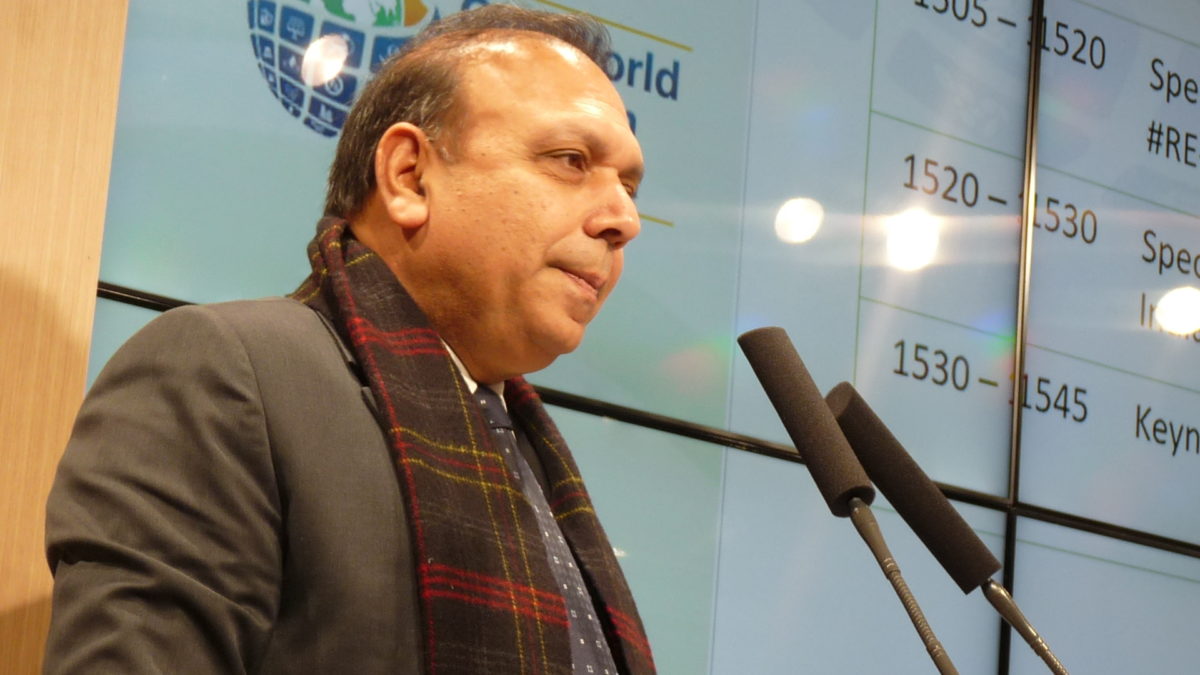Electricity demand in India would reach 840 GW by 2030 if the country’s gross domestic product grows at a rate of 6.5 per cent, as predicted.
To achieve its goal of generating 40 per cent of electricity from non-fossil fuels by 2030, India would have to install 500 GW of renewable energy generation capacity by 2028, according to Anand Kumar, Secretary of the Ministry of New and Renewable Energy, who was speaking at the India-Norway Business Summit 2019 which opened yesterday in New Delhi.
Of those 500 GW, 350 GW would be solar, 140 GW wind, and the remaining generation capacity would come from small hydro and biomass power.
India already has 75 GW of installed renewable energy capacity with another 46 GW under implementation. The 75 GW in place makes up around 22 per cent of the nation’s installed power generation capacity.
Is 100% renewable energy possible?
While the Indian government is looking at meeting 40 per cent of electricity demand from non-fossil fuels by 2030, an all-renewable energy system in 2050 is technically possible and economically viable for India, with the levelized cost of electricity expected to fall from the current €58/MWh (Rs4,626) to €52 under one scenario in a recent report, and to €46 in another that included demand for power, water desalination and non-energy industrial gas sectors.
The study, by Finland’s Lappeenranta University of Technology, stated the price of electricity in India would retreat further if subsidy schemes from the government were taken into account.
The report aims to demonstrate a fully sustainable energy system could be cheaper than the current system without subsidies. The energy system envisioned would be mainly based on PV, with batteries supplying electricity at night and in early morning hours.
However, the large scale deployment of renewables in future would require storage solutions to balance intermittency and create a more reliable and flexible electricity distribution system.
Prime Minister Narendra Modi has made solar power a central plank of his administration and with traditional political force the Indian National Congress widely expected to eat into the big majority held by Modi’s Bharatiya Janata Party in this year’s general election, it is unclear whether a new government would place as much faith in the technology.
This content is protected by copyright and may not be reused. If you want to cooperate with us and would like to reuse some of our content, please contact: editors@pv-magazine.com.









By submitting this form you agree to pv magazine using your data for the purposes of publishing your comment.
Your personal data will only be disclosed or otherwise transmitted to third parties for the purposes of spam filtering or if this is necessary for technical maintenance of the website. Any other transfer to third parties will not take place unless this is justified on the basis of applicable data protection regulations or if pv magazine is legally obliged to do so.
You may revoke this consent at any time with effect for the future, in which case your personal data will be deleted immediately. Otherwise, your data will be deleted if pv magazine has processed your request or the purpose of data storage is fulfilled.
Further information on data privacy can be found in our Data Protection Policy.